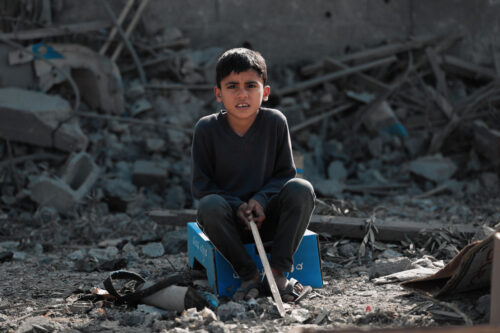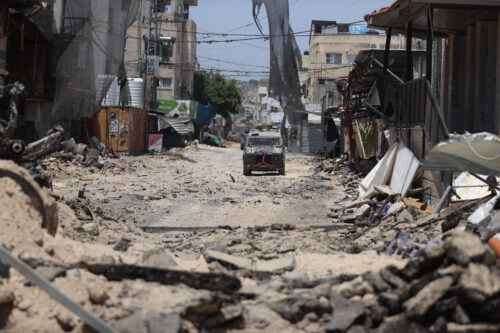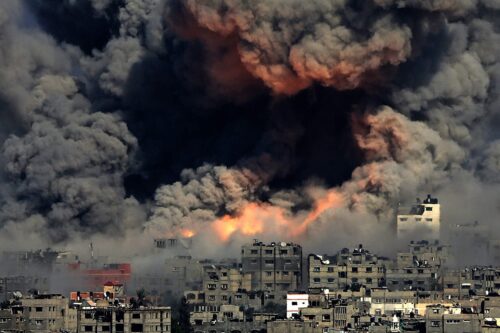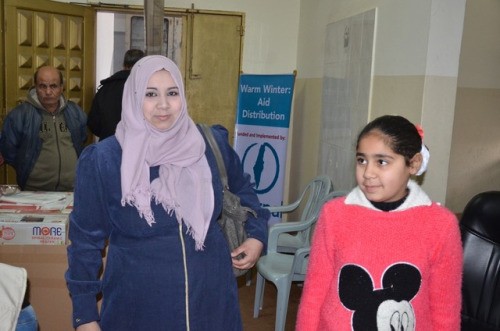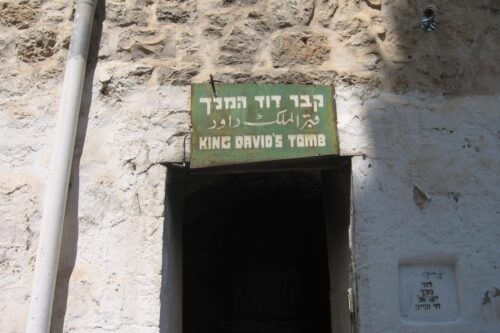Coping with food shortage in Palestine: Fathea’s Story
At the heart of Interpal’s Feeding Futures campaign this year is, quite appropriately, food: the basic human need that thousands of Palestinians struggle to meet on a daily basis. In fact, according to recent reports, 1.6 million Palestinians remain food insecure. In Gaza, more than half (57%) of the population are suffering from a lack of food[fusion_builder_container hundred_percent=”yes” overflow=”visible”][fusion_builder_row][fusion_builder_column type=”1_1″ background_position=”left top” background_color=”” border_size=”” border_color=”” border_style=”solid” spacing=”yes” background_image=”” background_repeat=”no-repeat” padding=”” margin_top=”0px” margin_bottom=”0px” class=”” id=”” animation_type=”” animation_speed=”0.3″ animation_direction=”left” hide_on_mobile=”no” center_content=”no” min_height=”none”][1].
As we know, Ramadan is a time to pray, fast and ask Allah (swt) for His forgiveness, but also a time to reflect on those less fortunate, so that we might help them during (and beyond) this precious month. Sometimes it can be hard for us to fully grasp the on-going devastation many Palestinians are forced to endure on a daily basis. Interpal reaches out to thousands of our Palestinian brothers and sisters every day to tell you their story. Here is one.
Fathea Ayoub lives in the Khan Younis Refugee Camp, located in the southern area of the Gaza Strip and established following the 1948 Nakba. The camp’s history is marked by devastation, on-going attacks and suffocating economic restrictions on a regional level. The camp’s history is hard not to see physically- it is inescapably etched on the walls of the crumbling buildings housing tens of thousands of displaced refugees.
This is where Fathea raises her four children. Her home is described by aid delivery agents as ‘basic’ and the general living conditions for Fathea and her children are harshly impacted by the difficulties she faces trying to earn an income. This is the case for many Palestinians living under severely restrictive economic conditions across the Occupied Territories and elsewhere. The main causes are controls and restrictions over the movement of goods, services and people. With the economy strangled, Palestinians, such as Fathea, are under immense pressure to find alternative mechanisms to feed their families.
The majority of Palestinians living in the Gaza Strip are forced to change their food consumption patterns in order to simply survive. This usually means that Palestinians are forced to generally eat less food, substitute nutritious food with cheaper items of less nutritional value, take their children out of school to reduce expenditures and forego healthcare altogether.
Fathea’s only option considering the restrictions she faces is to rely on aid assistance to feed her children. Two of her children were forced to leave school because she was unable to afford their educational costs. For people like Fathea living in severe conditions such as this, sacrificing the future to meet urgent needs in the present is a common inevitability.
Fortunately, the one thing she will never have to sacrifice is her faith. During the month of Ramadan last year, Interpal provided Fathea with food parcels to feed her family. She also receives assistance from other Interpal aid programmes on a long term basis. Fathea shouldn’t have to choose between basic human rights. She deserves it all. This is a message to her donor:
“Thank you so much for this help. You do not know how much it helps me! I had nothing to provide for my children on the first day of Ramadan except old bread and that is how we used to survive. Al hamdu le Allah first and Jazakum Allah Khair!“

Can you help feed futures this Ramadan? Please visit our website www.interpal.org or call 020 8961 9993.
[1] Statistic by Palestinian Central Bureau of Statistics (PCBS), the Food and Agriculture Organization (FAO), the United Nations Relief and Works Agency for Palestine Refugees in the Near East (UNRWA) and the World Food Program (WFP) clarified the food security is high in Palestine.
[/fusion_builder_column][/fusion_builder_row][/fusion_builder_container]
Calculate your Zakat
Confused about how to calculate your Zakat? Try our simple-to-use calculator

